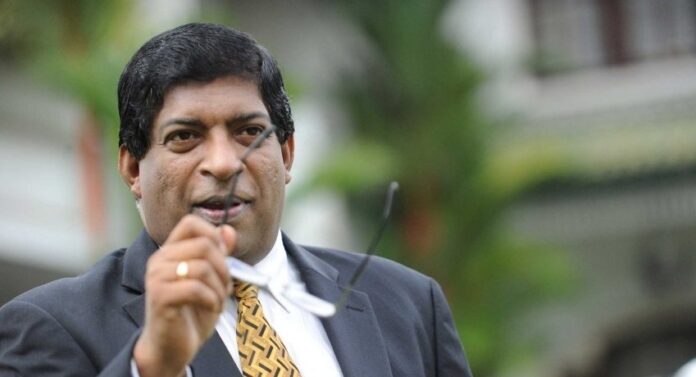By: Staff Writer
May 01, Colombo (LNW): The government is now compelled to transform the public sector employees into smart workers with the aim of unlocking the nation’s full potential and drive sustainable economic growth, former finance minister Ravi Karunanyake revealed.
The delivery of public services is impaired by inadequate systems, low skills and limited competencies, and often interrupted by strike action of employees forcing the people to blame the government.
Salaries for the month of April have been paid with the increased public employee allowance of Rs 10,000 outlined in the 2024 budget proposal.
This was not the first time that they received a salary increase despite the private sector works much better than the state sector even without any salary hike as they get adequate payment for their work done.
With the introduction of smart worker concept these employee will definitely receive high salaries or wages with the improvement of productivity in their institutions.
In comparison to the private sector, public institutions have specific needs, often not operating as a typical business entity.
They require intelligent automation solutions that can support their particular strategic and organizational needs, which, in turn, can form the basis of continued digital expansion.
While there are many different kinds of intelligent automation and artificial intelligence solutions, undertaking tasks within nearly every function, it is essential to consider them as “smart workers”; able to simplify and automate time-consuming manual processes.
Mr Karunanayake said that the main aim of this initiative is to eliminate official bureaucracy which has become a stumbling block for the country’ economic development and good governance.
It will also ensure an efficient and productive public service without waste and corruption, he said adding that 90 percent of the government’s administrative issues could be solved via smart worker initiative, he added.
In the past public service in Sri Lanka was manned by persons with high degree of professionalism. They had the ability to assist the country’s leadership to set standards in managing human, financial and material resources to achieve effective good governance
The present public sector is tainted with mismanagement of the public interest and the present 1.5 million state work force or one public servant for every 14 Sri Lankans, has no concern for worker productivity as the whole sector is highly politicized.
President Ranil Wickremasinghe in his2024 Budget speech outlined plans for a “new growth model based on a digitalised social market economy.
The plan also included effectiveness, equitability and green growth as key aspects of this new model with the aim of achieving a US $ 15 billion digital economy by 2030.
Successive governments have made various digital economy related Budget proposals allocating around Rs. 70 billion for digitalisation efforts over the past eight-year period.
But most of them were implementing in snail phase as the public sector was not ready to quickly accustom to new systems, Mr Karunnayake said adding that this lethargic attitude and their corrupted mind set should be changed for the betterment of the country soon.
Many such digitization projects are still relevant but most of them have either completely halted and some of them are still in progress without proper monitoring and evaluation for effectiveness.
President Ranil Wickremasinghe has as unveiled a comprehensive national digital strategy for Sri Lanka titled “Digital Sri Lanka 2030” along with an implementation plan which will address all these issues, he claimed.
The vision for 2030 is to have a digitally empowered Sri Lanka for innovation, inclusion and sustainable growth with smart public sector work force he added.


